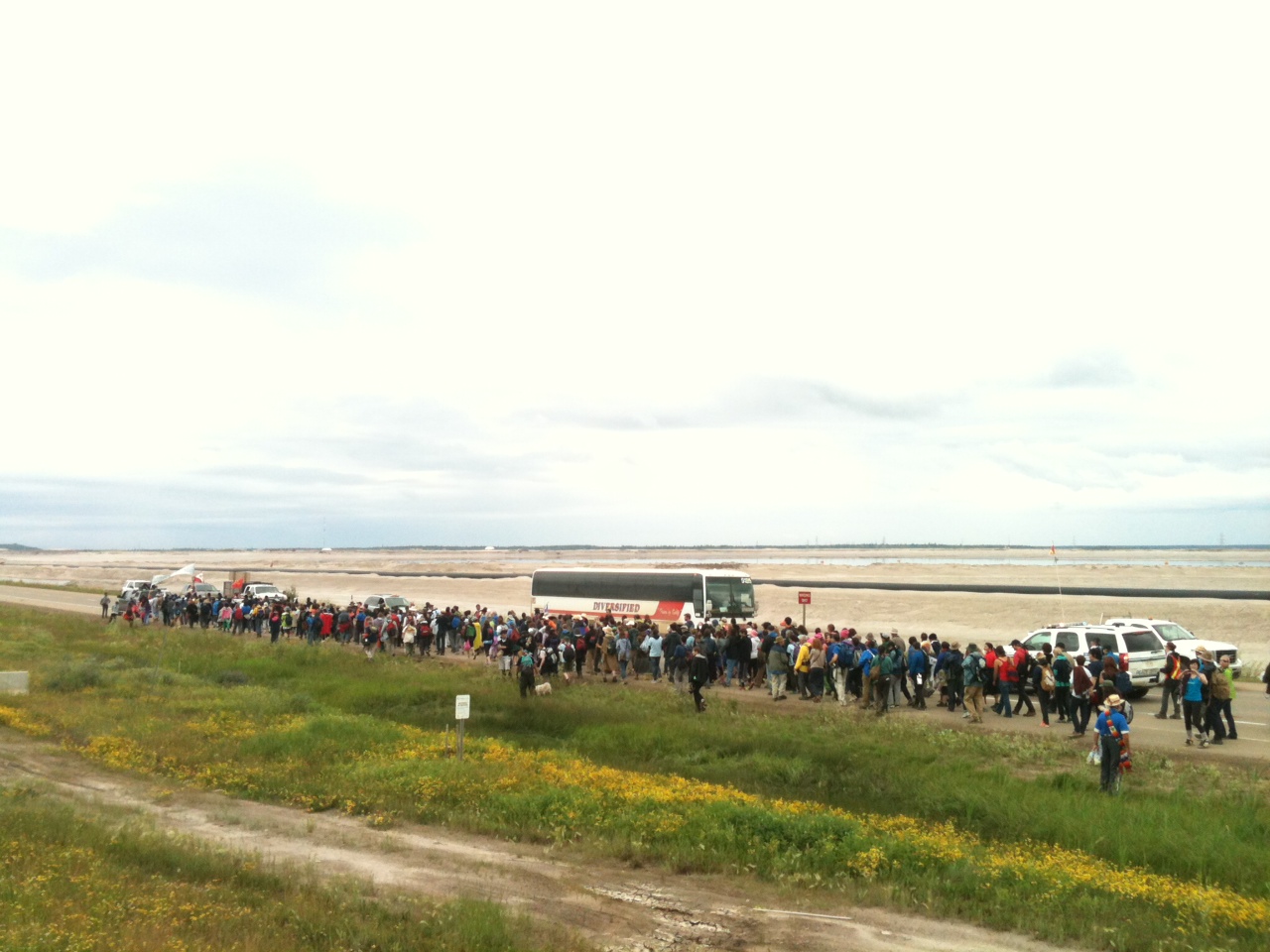Tales from the tar sands
Tales from the tar sands

On July 6, the founder of 350.org, Bill McKibben, opened the fourth annual Tar Sands Healing Walk with a speech in front of more than 500 demonstrators gathered at Crane Lake Park, north of Fort McMurray. McKibben is an unassuming scholar turned environmental activist and founder of 350.org. Today, he is here as part of a solidarity action that remounts international protests opposing the tar sands into a local prayer walk to heal the Earth. “All fights, all battles for the planet are important, but some are more important than others,” McKibben, an unassuming scholar turned environmental activist, tells the crowd. “And there is no battle on the face of the Earth more important than what’s going on here in Alberta.”
The Healing Walk began in 2010 to strengthen solidarity between Dene, Chipewyan and Fort McMurray First Nations, as well as environmental groups, such as Keepers of the Athabasca. The 14 km march follows a path around the tar sands loop, also known as the Syncrude Tailings loop. The march begins with muted explosions deterring birds from deathly toxic tailings ponds. This year, elders and Dene drummers started the walk under all a “Stop the Destruction, Start the Healing” banner, as every marcher stood still amid the open-pit mined and clear-cut boreal forestland to pray for the healing of Mother Earth at each of the four directions.
“It’s absolutely imperative that we come together and we really pray for the healing of the land because that’s why we’re all here,” Eriel Deranger, of Athabasca Chipewyan First Nation and a Healing Walk organizer, announced as she shared breaking news of an oil spill into the Athabasca river 40km long and the width of the river.
It's sad news like this that draws people here to the walk, and the full-day conference that precedies it, held on Indian Beach campground. In addition to healing walk participants from around the world, other attendees included acclaimed Anishinaabe author Winona LaDuke, who arrived from the U.S. to deliver keynote speeches with Naomi Klein and Tzeporah Berman. “When I went into that town of Fort McMurray, you know what it reminds me of?" said LaDuke. "It reminds me of going into the town that’s the ecological equivalent of Auschwitz.”
This piece is currently featured in the Spotlight section of This Magazine (September/October - print issue)

